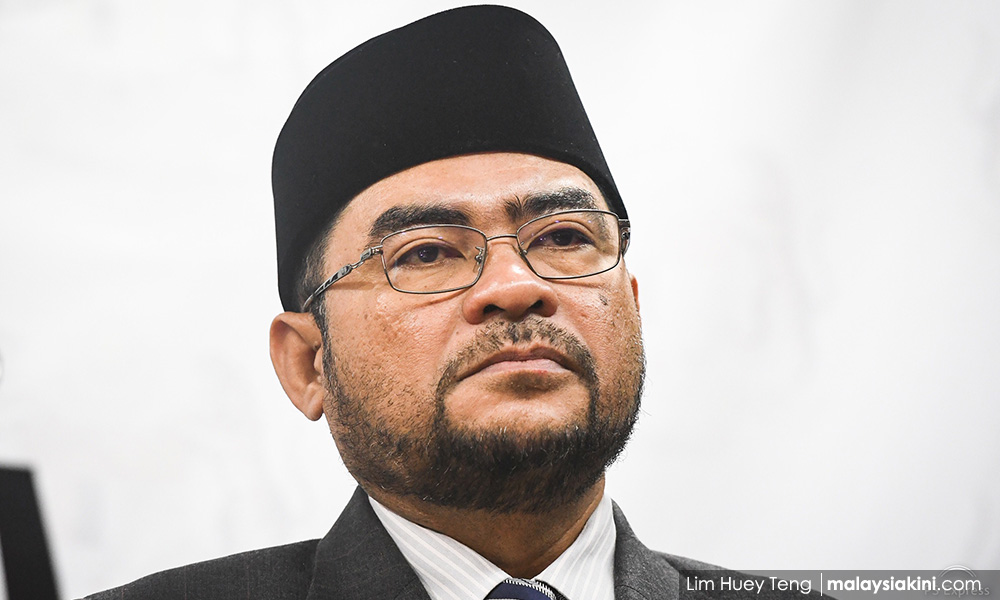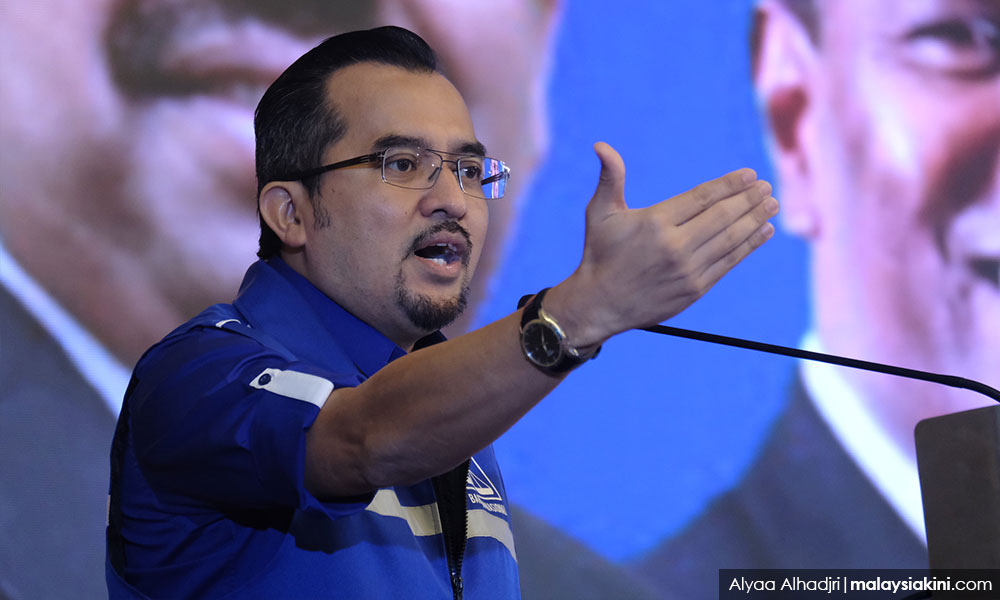“An appeaser is one who feeds a crocodile, hoping it will eat him last.”
- Winston S Churchill
The question is much more urgent than merely the banning of transgender folk of their right of religious worship.
Not that the rights of trans people are not urgent but rather all these issues of rights are in jeopardy because of the balkanisation of dissent when it comes to collective and individual rights in this country.
This balkanisation happens because of the Muslim/Non-Muslim divide, which is a political construct, and one that has systemically encroached upon our public and private spheres for decades under successive governments including that of supposedly "moderate" Pakatan Harapan.
When this balkanisation does occur, it makes the divide and conquer strategy much more effective to totalitarian or fascist power structures.
This means that we cannot dissent as Malaysians but rather we have to sublimate egalitarian principles based on race and religion (which is not mutually exclusive in this country), which then makes systemic change impossible.
The point is not that dissent, especially when it comes to religious issues, is not favoured by the majority.
What this balkanisation does is silence the voices of the minority in the majority by denying them access to like-minded individuals, thus negating a collective diverse response to issues.
Nowhere in this more evident when then Harapan religious czar Mujahid Yusof Rawa expressed disgust that a woman’s march also included advocates for LGBTQ+ rights.
He said: "I was very shocked by the actions of some quarters today who abused democratic space to defend something that is wrong by Islam.
"As I have said before, the government is firm that LGBT practices will never be accepted in this country. It is impossible for us to acknowledge something illegal."

Mujahid, who was the de facto Islamic affairs minister, actually said that it is an abuse of our democratic space to defend something that is deemed wrong by his professed faith. Does anyone see the problem here?
This is why the balkanisation of dissent profits existing ethnoreligious power structures and you can bet your last ringgit that so-called secular political operatives were squirming because most often they wear their religious beliefs on their sleeves, which goes against the whole separation of church and state idea, which they tell their base is what would save this country.
Furthermore, what Mujahid did was narrowly define democratic spaces for all, through the narrow confines of his religious beliefs.
This idea that non-Muslims "should not touch” on Muslims issues, has been used to silence critics of unjust laws or bureaucratic diktats in the name of racial and religious solidarity.
The idea behind this is that the issues facing Muslims are separate from those facing non-Muslims and has no impact on the non-Muslim community. This of course is a complete lie. Herein lies the problem.
The question sets up an "us versus them" dialectic, of non-Muslims versus Muslims. Nobody has a right to tell anyone how to practise his or her religion, including the state whose religious laws have far-reaching consequences for all the country’s citizens.
When we object to certain practices of the state which we deem immoral or corrupt, we do so as citizens of the country. The same principle applies to certain religious practices.
We speak for those who cannot, we support those who have been unfairly targeted and who have no choice as to whether they accept or reject religious dogma as defined by the state.
'Separate but equal' policy
Across the world, in regimes that actively oppose secularism, the agenda is to separate communities either by religion or race and the means by which they do this is through legislation.
If communities cannot come together to oppose injustice or prejudice, merely because such is defined as religious imperatives, there can be no hope for change.
Now, if this “separate but equal” policy was a reality, then there would be a realpolitik argument to be made for non-Muslims not voicing their dissent about laws and rules that they consider unjust or arbitrary to their Muslim brethren. I would not make such an argument, of course.
But the reality has always been that sanctions against Muslims have always had an effect on non-Muslims.
The most cogent example of this, are the remarks of a former chief cleric of PAS who advocated that party's ministers speak up against the increase of special draws in this country.
The key is not as the cleric contends that the present government is a Malay- Muslim government but rather this: “Knowing what is halal and haram, PAS ministers must voice out (their opposition) as they are now part of the government.”
In other words, this is not about what is haram or halal for Muslims but rather what is haram and halal for everyone.
This of course means that the idea that non-Muslims do not have to be concerned about what happens to their Muslim brethren in this country is complete bunkum because, ultimately, we are all affected by the religious imperatives of the religious and political class.

Only in this country, can a supposedly “moderate” Muslim political operative from Amanah raise (a couple of years back) the spectre of dangerous atheist groups attempting to corrupt Malay youths and then deputy minister in the Prime Minister's Department Asyraf Wajdi Dusuki claimed:
"We need to understand in the context of Malaysia, freedom of religion stated in our Federal Constitution does not mean freedom not to have a religion.”
Now you may be wondering: does this apply to non-Muslims or only to Muslims?
And if you are an atheist, would you be sanctioned by the state because your very presence apparently affects Muslims?
Take the issue of proselytisation for example. As yet there have been no concrete examples of non-Muslims proselytising to Muslims, which would require actions of the state or the strengthening of existing laws.
Meanwhile, the state allows conversion through proselytisation, even unilateral conversions of minors.
This idea that converting in this country does not come with some state-sponsored benefits is something that is often overlooked in these conversion debates.
Nobody wants to have that conversation because to do so would invite religious groups to lodge police reports that claim you were disrespecting the Muslim faith.
This balkanisation of dissent affects us all. - Mkini
S THAYAPARAN is Commander (Rtd) of the Royal Malaysian Navy. Fīat jūstitia ruat cælum - "Let justice be done though the heavens fall."
The views expressed here are those of the author/contributor and do not necessarily represent the views of MMKtT.




No comments:
Post a Comment
Note: Only a member of this blog may post a comment.